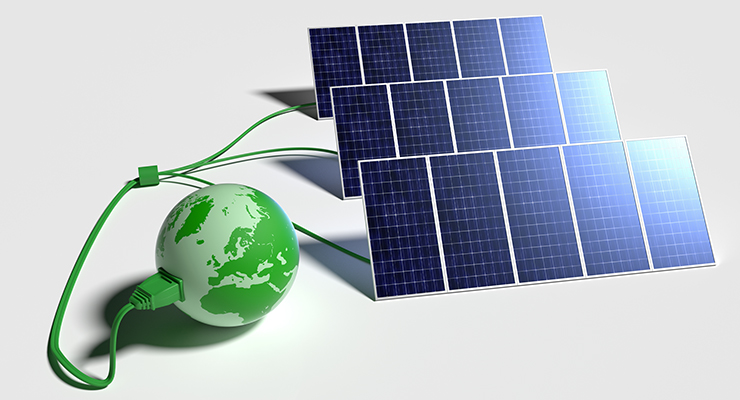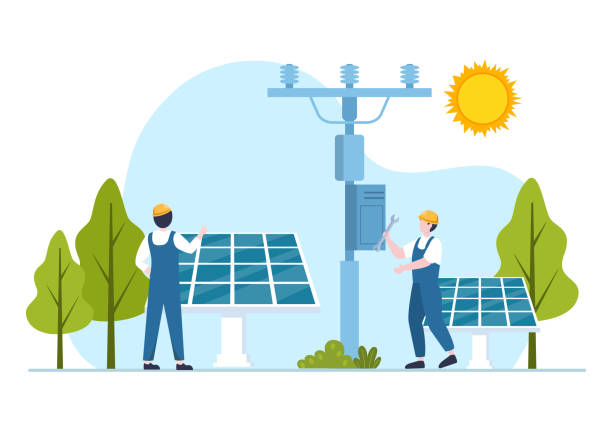
Introduction
Solar energy plays a crucial role in achieving the UN Sustainable Development Goals by providing clean, affordable, and reliable energy sources. As the world faces the challenges of climate change and the need for sustainable development, solar energy emerges as a viable solution. This article explores the historical background, key concepts and definitions, main discussion points, case studies, current trends, challenges, and future outlook of solar energy in achieving the SDGs.
Historical Background
The evolution of solar energy and its use in sustainable development can be traced back to ancient civilizations. Humans have long harnessed the power of the sun for heating, cooking, and drying purposes. However, it was not until the 19th century that significant advancements in solar energy technology began. The invention of the photovoltaic cell in the 1950s marked a turning point in solar energy’s potential for sustainable development.
Key Concepts and Definitions
Solar energy refers to the conversion of sunlight into usable energy through various technologies such as photovoltaic cells and solar thermal systems. It has vast potential for sustainable development, as it is a clean and renewable source of energy. The UN Sustainable Development Goals provide a framework for global development, encompassing 17 goals to be achieved by 2030. Solar energy aligns with several SDGs, including Goal 7 – Affordable and Clean Energy, Goal 13 – Climate Action, and Goal 3 – Good Health and Well-being.

Main Discussion Points
Importance of solar energy in achieving Goal 7 – Affordable and Clean Energy
Solar energy plays a crucial role in increasing access to affordable and clean energy. By harnessing the power of the sun, solar panels can generate electricity in remote areas that are not connected to the grid. This helps to bridge the energy gap and provide electricity to communities that would otherwise rely on costly and polluting alternatives. Additionally, solar energy reduces the dependence on fossil fuels, contributing to a cleaner and more sustainable energy future.
Contribution of solar energy in achieving Goal 13 – Climate Action
Solar energy is a key solution to mitigate climate change impacts. By relying on renewable energy sources like solar, greenhouse gas emissions can be significantly reduced. Solar panels produce electricity without emitting harmful pollutants, helping to combat climate change. Furthermore, solar energy promotes the transition to a low-carbon economy by displacing fossil fuel-based power generation.
Role of solar energy in achieving Goal 3 – Good Health and Well-being
Solar energy has a positive impact on access to healthcare and sanitation, contributing to Goal 3 – Good Health and Well-being. Solar-powered medical facilities can provide essential services in off-grid locations, improving healthcare access for remote communities. Solar energy also enables the provision of clean water through solar-powered water purification systems, reducing the spread of waterborne diseases and improving overall well-being.

Case Studies or Examples
Solar energy projects in developing countries improving access to electricity
In developing countries, solar energy projects have proven to be a game-changer in improving access to electricity. For example, the Solar Home System program in Bangladesh has brought electricity to millions of rural households through off-grid solar solutions. Similarly, the Solar Energy Program in India aims to provide electricity to all households through solar power, reducing reliance on fossil fuels and improving energy access in underserved areas.
Solar-powered water purification systems benefiting rural communities
Solar-powered water purification systems have been successfully implemented in rural communities worldwide. In countries like Kenya and Uganda, solar-powered pumps are used to draw water from wells and rivers, which is then purified using UV rays from solar panels. These systems provide clean drinking water to communities that previously lacked access to safe water sources, improving health and well-being.
Current Trends or Developments
Recent advancements in solar energy technology
Solar energy technology has witnessed significant advancements in recent years. The efficiency of photovoltaic cells has increased, allowing for more electricity generation from sunlight. Emerging technologies like perovskite solar cells hold promise for further efficiency improvements. Additionally, innovations in solar thermal systems, such as concentrating solar power, enable the storage of solar energy for use during non-sunlight hours.
Growing investment in solar energy projects globally
There has been a substantial increase in investment in solar energy projects globally. Governments, businesses, and individuals are recognizing the economic and environmental benefits of solar energy. The falling costs of solar panels and supportive policies have led to a surge in solar installations. This trend is expected to continue as the world transitions to a low-carbon economy.
Research findings on the environmental and economic benefits of solar energy
Various research studies have highlighted the environmental and economic benefits of solar energy. Solar panels produce clean electricity without emitting pollutants, reducing air and water pollution. Furthermore, the deployment of solar energy projects creates jobs and stimulates local economies. These findings reinforce the importance of solar energy as a sustainable solution for achieving the SDGs.

Challenges or Controversies
Addressing the intermittency and storage challenges of solar energy
One of the main challenges of solar energy is its intermittency, as it relies on sunlight. However, advancements in energy storage technologies, such as batteries, are addressing this issue by enabling the storage of excess solar energy for use during periods of low sunlight. Additionally, grid integration and smart energy management systems can help balance the intermittent nature of solar energy.
Controversies surrounding the environmental impacts of solar energy production
The production of solar panels involves the use of certain materials, including rare earth metals, which can have environmental implications. However, efforts are being made to develop more sustainable manufacturing processes and recycle solar panels at the end of their lifespan. Life cycle assessments and eco-design approaches are being employed to minimize the environmental footprint of solar energy production.
Future Outlook
Potential for further advancements and cost reductions in solar energy technology
The future of solar energy holds great promise as advancements and cost reductions continue. Research and development efforts are focused on improving the efficiency and durability of photovoltaic cells, as well as exploring new materials and technologies. With continued innovation, solar energy has the potential to become even more competitive with fossil fuels and play a significant role in the global energy transition.
Integration of solar energy with other renewable energy sources for a sustainable energy mix
The integration of solar energy with other renewable energy sources is essential for achieving a sustainable energy mix. Combining solar power with wind, hydropower, and other renewables can provide a reliable and stable energy supply. This diversified energy mix helps to overcome the limitations of individual renewable sources and ensures a sustainable and resilient energy system for the future.
Conclusion
Solar energy is a crucial component in achieving the UN Sustainable Development Goals. It offers affordable, clean, and reliable energy, contributing to Goal 7 – Affordable and Clean Energy. Solar power plays a vital role in mitigating climate change impacts, aligning with Goal 13 – Climate Action. Additionally, solar energy improves access to healthcare and sanitation, supporting Goal 3 – Good Health and Well-being. With continued advancements and investments, solar energy has the potential to transform the global energy landscape and pave the way for a sustainable future.




